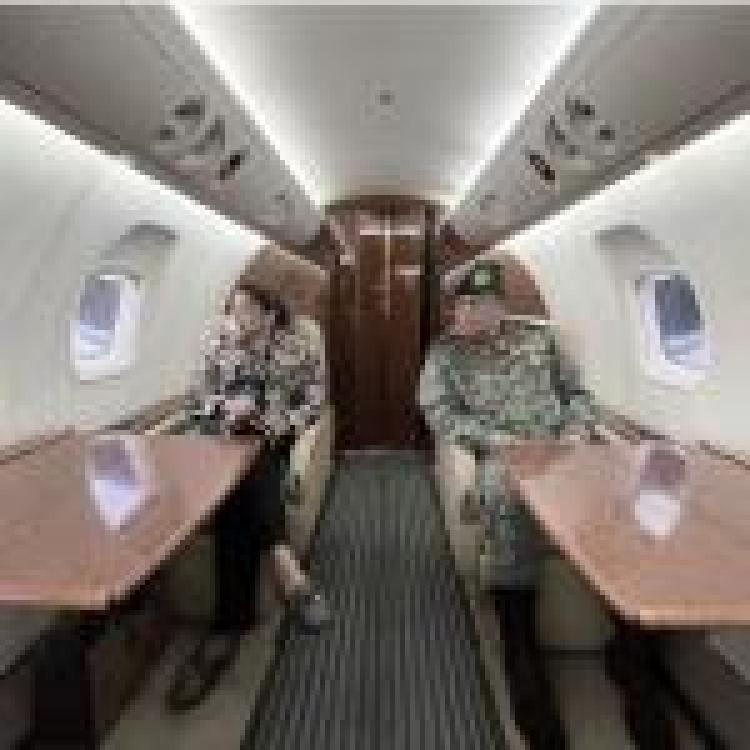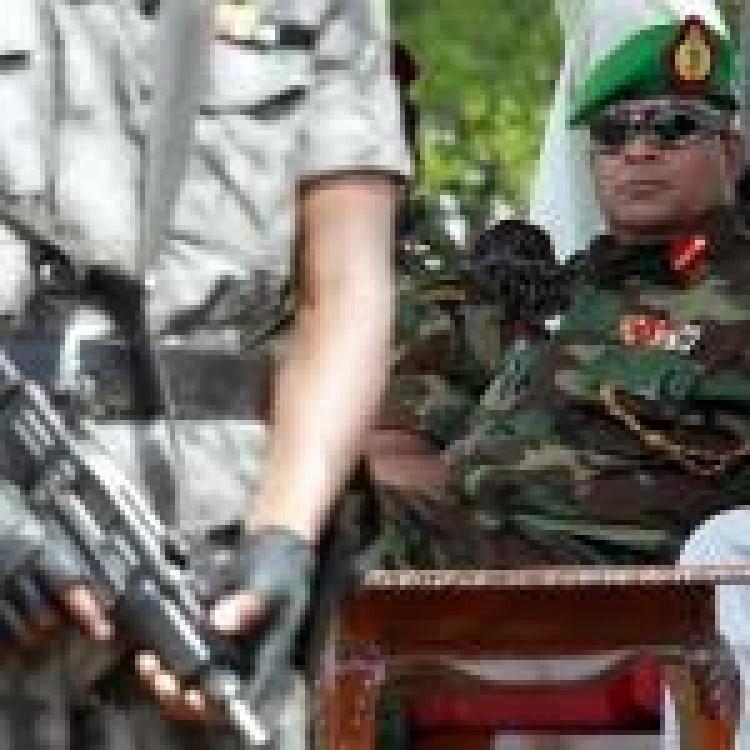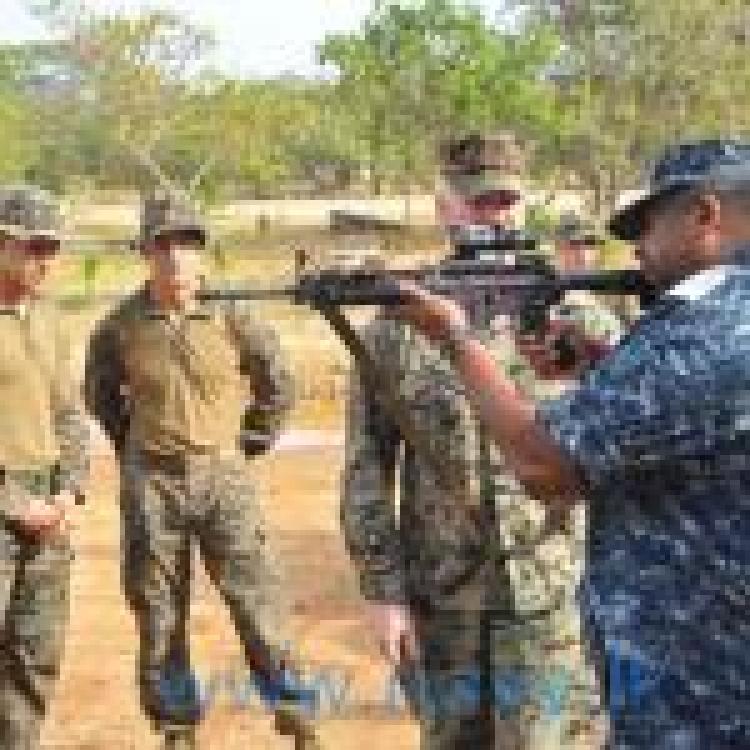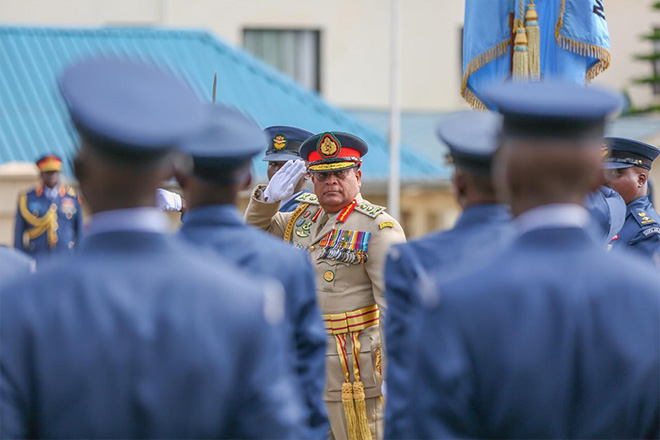
Sri Lanka's former army commander and accused war criminal Shavendra Silva flew to Nairobi, Kenya this week to "enhance bilateral defence relations" despite Sri Lanka's longstanding human rights abuses.
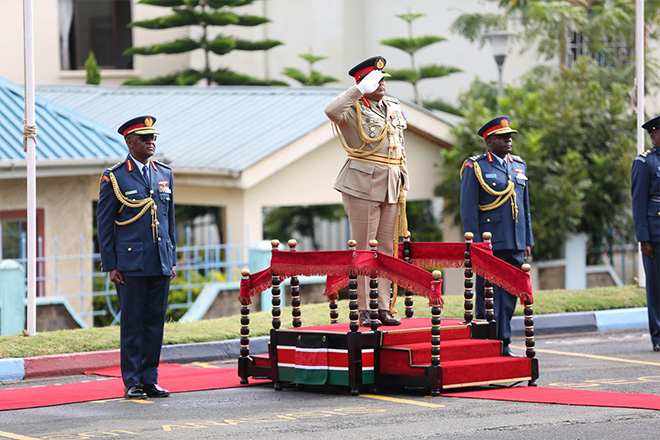
Silva accompanied by the Sri Lankan High Commissioner in Kenya Velupillai Kananathan met with their Kenyan defence counterparts and reportedly discussed matters relating to shared security challenges. This includes defence-related domains, counterterrorism efforts, maritime security, peacekeeping operations and capacity-building initiatives.
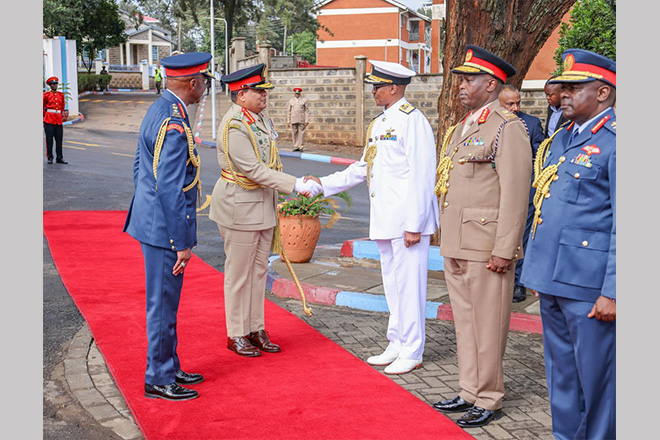
Silva who now serves as the Chief of Defence Staff under the Wickremesinghe regime is known to have led the notorious 58 Division during the final phase of the armed conflict in 2009. The division has been accused of a litany of human rights abuses including summary executions, shelling of hospitals and food lines, white phosphorous against the civilian population, rape, and sexual violence as well as enforced disappearances.
In 2011, Channel 4 News interviewed an army officer on the front lines of the offensive, who told of the crimes committed by troops from the unit. He stated,
“They shot people at random, stabbed people, raped them, cut out their tongues, cut women’s breasts off. I have witnessed this with my own eyes. I saw the naked dead bodies of women without heads and other parts of their bodies. I saw a lot of small innocent children getting killed in large numbers. I saw people soaked in blood.
They could do whatever they wanted there. It was their empire.”
In 2020, the US announced that Silva had been barred from entering the USA “due to credible information of his involvement, through command responsibility, in gross violations of human rights”.
Read more about Silva in our feature: US bans Sri Lanka’s army chief from entry over war crimes.

